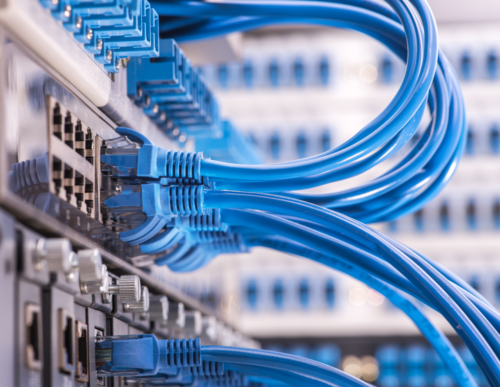The global digital economy runs on a physical foundation of high-speed connectivity, and at the heart of every modern data center lies a meticulously designed network of structured cabling. This critical infrastructure market is powered by a specialized and highly consolidated ecosystem of Data Center Structured Cabling Market Companies. This landscape is dominated by a handful of major multinational corporations that design, manufacture, and supply the comprehensive, end-to-end cabling systems—including copper and fiber optic cables, connectors, patch panels, and cable management hardware—that form the physical nervous system of the data center. These firms provide the essential, high-performance physical layer upon which all data traffic, from cloud computing and AI workloads to streaming video and e-commerce, depends. The Data Center Structured Cabling Market size is projected to grow USD 11.17 Billion by 2035, exhibiting a CAGR of 10.70% during the forecast period 2025-2035. This substantial growth is a direct reflection of the relentless construction of new hyperscale and colocation data centers worldwide, and the continuous need to upgrade existing facilities to support higher network speeds and greater densities, driven by the insatiable demand for data.
The market is anchored by a core group of large, vertically integrated, and globally recognized cabling and connectivity manufacturers. Companies like CommScope, Corning Inc., and Legrand are the undisputed titans of this industry. CommScope has a massive and comprehensive portfolio, offering everything from high-speed fiber optic and copper cabling solutions to the racks and enclosures that house them, making it a "one-stop-shop" for data center physical infrastructure. Corning is a world leader in optical fiber technology, a position built on a long history of innovation in materials science. Its strategy is to provide the highest-performance optical fiber and connectivity solutions, which are essential for the high-bandwidth, long-distance connections both within and between data centers. Legrand, with its portfolio of brands including Ortronics and Minkels, offers a complete solution that combines connectivity with cable management, power distribution, and server cabinets. The competitive advantage of these giants is their immense manufacturing scale, their global supply chains, their vast patent portfolios, and their deep, long-standing relationships with the major data center designers, consultants, and contractors who specify their products into large-scale projects.
In parallel to these major diversified manufacturers, a second tier of highly influential players consists of other major connectivity specialists. Panduit is a significant player, renowned for its high-quality connectivity components and its innovative solutions for cable management and data center infrastructure management (DCIM). Belden is another major force, with a strong portfolio of high-performance copper and fiber cabling solutions. The market also includes major electrical equipment companies like Schneider Electric and Eaton, who, while focused on power and cooling, also offer a comprehensive range of data center racks, enclosures, and some connectivity solutions as part of their integrated data center infrastructure offering. While the market for the raw fiber optic cable itself is broader, the market for the complete, end-to-end structured cabling system—which includes the connectors, patch panels, and warranty-backed performance guarantees—is highly concentrated. These leading companies compete on the basis of their product performance, their system reliability, the quality of their channel partner programs, and their ability to provide a complete, certified, and future-proofed solution for the demanding data center environment.
Top Trending Reports -
Italy Application Hosting Market



